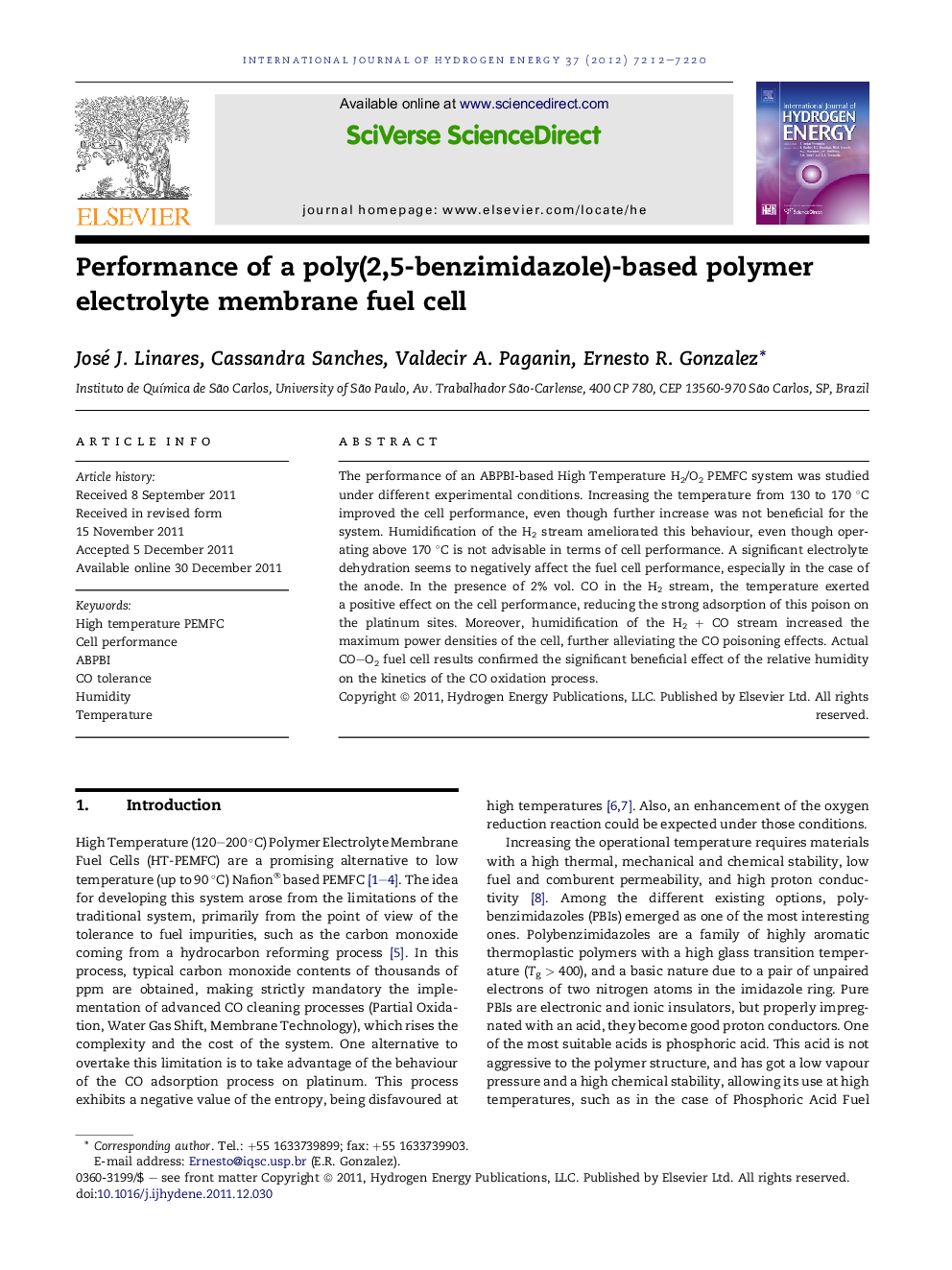| Article ID | Journal | Published Year | Pages | File Type |
|---|---|---|---|---|
| 1276667 | International Journal of Hydrogen Energy | 2012 | 9 Pages |
The performance of an ABPBI-based High Temperature H2/O2 PEMFC system was studied under different experimental conditions. Increasing the temperature from 130 to 170 °C improved the cell performance, even though further increase was not beneficial for the system. Humidification of the H2 stream ameliorated this behaviour, even though operating above 170 °C is not advisable in terms of cell performance. A significant electrolyte dehydration seems to negatively affect the fuel cell performance, especially in the case of the anode. In the presence of 2% vol. CO in the H2 stream, the temperature exerted a positive effect on the cell performance, reducing the strong adsorption of this poison on the platinum sites. Moreover, humidification of the H2 + CO stream increased the maximum power densities of the cell, further alleviating the CO poisoning effects. Actual CO–O2 fuel cell results confirmed the significant beneficial effect of the relative humidity on the kinetics of the CO oxidation process.
► Intermediate temperatures (150–170 °C) and a humidified fuel enhance the performance. ► Higher temperatures lead to an undesirable dehydration process in the anode. ► In the presence of CO, a high temperature and a humid fuel maximize the performance. ► CO electroxidation accelerates operating with a humid fuel. ► Flexible operation is attained at 170 °C and a water vapour pressure of 20,000 bars.
